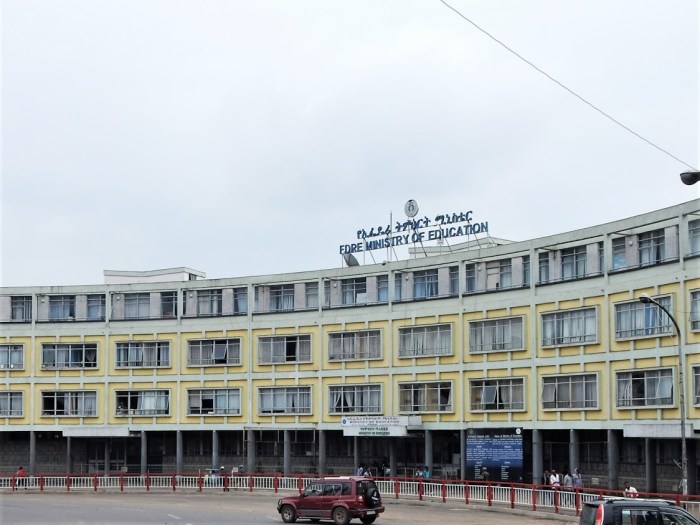The Ministry of Education of Ethiopia plays a pivotal role in shaping the educational landscape of the nation, overseeing a comprehensive system that encompasses primary, secondary, and tertiary levels. This guide delves into the intricacies of the Ethiopian education system, exploring its policies, curriculum, teacher training, technology integration, and international collaborations.
The Ministry of Education’s mission is to provide equitable access to quality education for all Ethiopians, empowering them with the knowledge and skills necessary to contribute to the country’s social and economic development. With a focus on innovation and collaboration, the Ministry strives to create an educational environment that fosters critical thinking, creativity, and lifelong learning.
Educational System Overview

The Ethiopian education system is designed to provide a comprehensive and accessible education for all citizens. It is structured into three main levels: primary, secondary, and tertiary.
The primary level consists of eight years of compulsory education, starting at age seven. The curriculum focuses on foundational skills in literacy, numeracy, and science. The secondary level is divided into two cycles: junior secondary (grades 9-10) and senior secondary (grades 11-12). Students choose a specialization in either science or humanities at the senior secondary level. The tertiary level includes universities, colleges, and vocational training institutes. Students can pursue a variety of programs, including undergraduate degrees, graduate degrees, and technical diplomas.
Key Policies and Initiatives
The Ministry of Education has implemented several key policies and initiatives to improve the quality of education in Ethiopia. These include:
- The Education Sector Development Program (ESDP): The ESDP is a comprehensive plan to improve access to and quality of education at all levels.
- The Teacher Development Program: This program aims to improve the quality of teaching by providing teachers with training and professional development opportunities.
- The School Feeding Program: This program provides meals to students in primary and secondary schools to improve their nutrition and attendance.
Curriculum and Assessment

The Ministry of Education of Ethiopia employs a comprehensive curriculum and assessment system to ensure the provision of quality education at all levels. The curriculum emphasizes the development of core academic skills, critical thinking, problem-solving abilities, and values essential for lifelong learning and success in a rapidly changing world. The assessment strategies are designed to evaluate students’ progress and provide feedback to inform teaching and learning practices.
Subjects and Skills Covered, Ministry of education of ethiopia
The curriculum is structured into three levels: primary, secondary, and tertiary. At the primary level (grades 1-8), students are introduced to core subjects such as Amharic (the official language), English, Mathematics, Science, Social Studies, and Physical Education. They also develop basic literacy, numeracy, and life skills. At the secondary level (grades 9-12), students continue to study core subjects while also specializing in specific tracks such as Natural Sciences, Social Sciences, or Humanities. The curriculum includes elective subjects that allow students to explore their interests and develop their talents. At the tertiary level, students pursue higher education in universities and colleges, where they specialize in various disciplines and professions.
National Examinations
National examinations play a crucial role in the Ethiopian education system. Students take standardized exams at the end of primary and secondary school to assess their academic achievement and determine their eligibility for further education. The results of these exams are used for placement in higher education institutions and for job applications. The national examinations are designed to ensure fairness and consistency in the assessment of students’ knowledge and skills across the country.
Teacher Training and Development

Teacher training and development are crucial pillars in Ethiopia’s educational system, aiming to equip educators with the necessary skills and knowledge to foster effective learning environments. The Ministry of Education has implemented various programs and initiatives to enhance teacher quality and professionalism.





